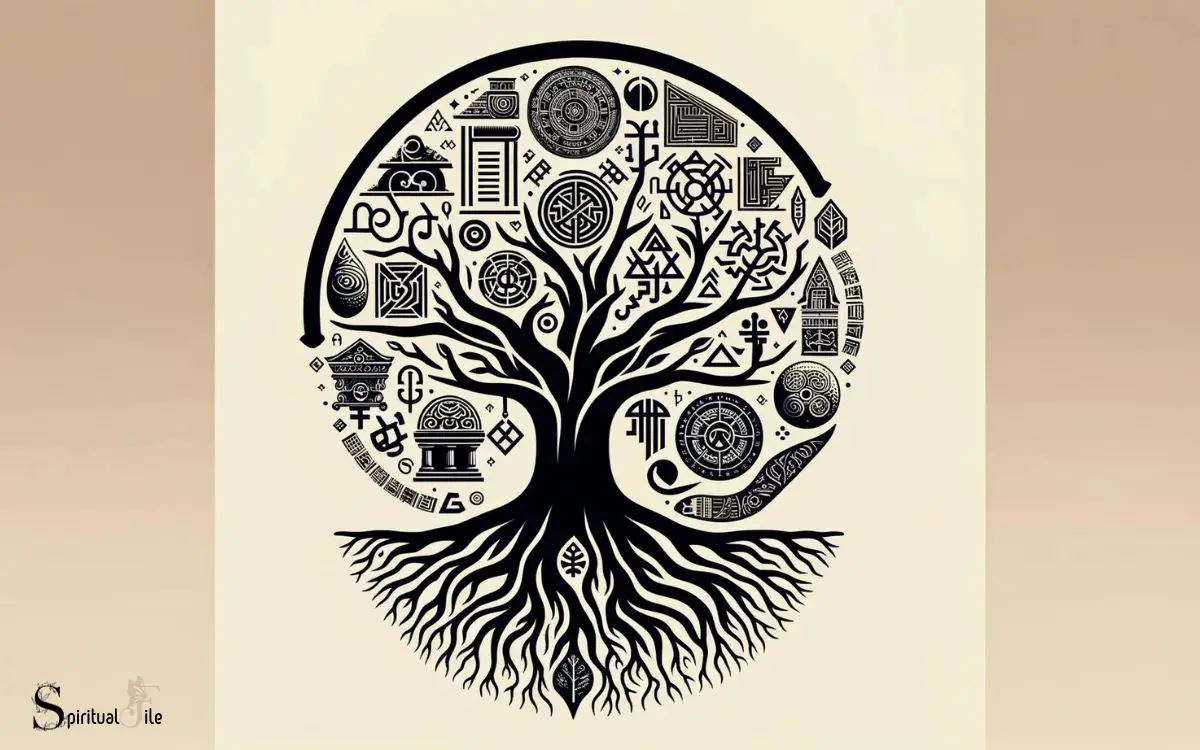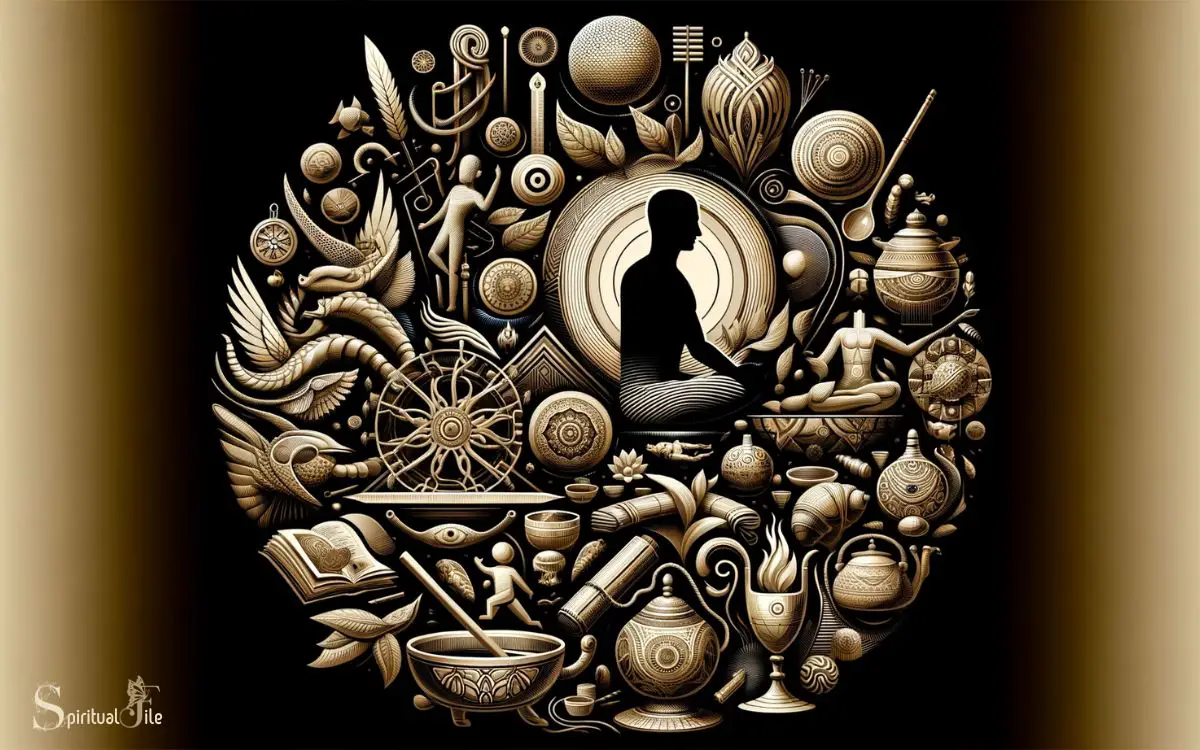New Age Spirituality Vs True Spirituality: Distinct Paths!
New Age spirituality and true spirituality are distinct paths with varying approaches and goals. While New Age spirituality often integrates a variety of eclectic practices and modern concepts, true spirituality is generally rooted in established traditions and deeper philosophical teachings.
Those seeking spiritual growth should be aware of the differences to choose a path that aligns with their personal quest for meaning and enlightenment.
New Age Spirituality:
Characterized by a blend of Eastern and Western mystic practices. Focuses on self-help, personal empowerment, and material success. Emphasizes individual experiences and interpretations.
True Spirituality:
Centers on traditional religious or philosophical systems. Encourages self-transcendence, community, and ethical living. Often involves structured practices and doctrinal teachings.
A New Age practice might include using crystals for healing, while true spirituality might involve meditation as part of a Buddhist tradition.
In the spiritual journey, it is crucial to distinguish between the eclectic allure of New Age practices and the profound depths of true spirituality for a fulfilling path forward.

Key Takeaway
Origins and Influences

The origins and influences of New Age spirituality and true spirituality are rooted in diverse cultural and philosophical traditions.
New Age spirituality draws from ancient Eastern and Western spiritual practices, such as Hinduism, Buddhism, and Native American traditions, blending them with modern beliefs in metaphysics, holistic healing, and environmentalism.
True spirituality, on the other hand, often finds its roots in established religious traditions such as Christianity, Islam, Judaism, and others, emphasizing the significance of faith, morality, and adherence to sacred texts.
Both are shaped by historical, societal, and individual experiences, as well as responses to contemporary challenges.
Understanding the distinct origins and influences of each can provide insight into the differences in their principles, practices, and ultimate goals, enabling individuals to make informed choices about their spiritual paths.
Beliefs and Philosophies

Emphasizing the significance of faith, morality, and adherence to sacred texts, the beliefs and philosophies of New Age spirituality and true spirituality differ in the following ways:
- New Age Spirituality often embraces a more eclectic and individualistic approach to beliefs, drawing from various traditions and philosophies.
- True spirituality, on the other hand, tends to uphold the authority of established religious texts and teachings, emphasizing the importance of adhering to specific doctrines and moral principles.
- New Age Spirituality often promotes the idea of self-enlightenment and self-realization as the ultimate goal, while true spirituality may focus more on humility, service to others, and surrender to a higher power.
These distinctions in beliefs and philosophies shape the practices and perspectives of adherents within each spiritual framework, influencing their approach to faith, morality, and the pursuit of spiritual fulfillment.
Practices and Rituals

Drawing from various traditions and philosophies, practitioners of New Age Spirituality incorporate a wide range of practices and rituals into their spiritual journey. These may include meditation, yoga, crystal healing, chakra balancing, and the use of essential oils.
The focus is often on personal growth, self-discovery, and healing, with an emphasis on connecting with the universe and higher consciousness.
Rituals such as smudging, moon ceremonies, and energy cleansing are also common in New Age Spirituality, believed to promote spiritual harmony and balance.
While these practices can provide individuals with a sense of peace and purpose, it’s important to approach them with discernment.
True spirituality, on the other hand, emphasizes the cultivation of virtues, selflessness, and a deeper connection with the divine, rather than solely focusing on individual experiences and rituals.
Approach to Personal Growth

An effective approach to personal growth in spirituality involves cultivating virtues and fostering a deeper connection with the divine. This approach requires sincere dedication and a willingness to engage in practices that nurture the soul and expand consciousness.
Here are three key elements to consider:
- Self-Reflection: Regular introspection and self-examination are essential for identifying areas of growth and transformation. This process allows individuals to gain insight into their thoughts, emotions, and behaviors, leading to personal evolution.
- Service to Others: Engaging in acts of kindness, compassion, and service to others not only benefits those in need but also facilitates spiritual growth. By selflessly helping others, individuals cultivate empathy, generosity, and humility.
- Mindfulness and Meditation: Practicing mindfulness and meditation fosters inner peace, clarity, and spiritual awareness. These practices enable individuals to quiet the mind, connect with their innermost selves, and experience a profound sense of spiritual growth.
Relationship With Tradition

In exploring the relationship with tradition, it is essential to consider the traditional roots of spirituality and how they are interpreted in modern times.
This discussion prompts an examination of how individuals balance the old and new in their spiritual practices and beliefs.
Understanding the interplay between traditional foundations and contemporary perspectives is crucial in discerning the authenticity of one’s spiritual journey.
Traditional Roots of Spirituality
The preservation of traditional roots is fundamental to understanding the relationship between spirituality and tradition. This connection provides a strong foundation for individuals seeking spiritual fulfillment.
To comprehend the significance of traditional roots in spirituality, consider the following:
- Cultural Significance: Tradition often carries cultural significance, providing a sense of belonging and identity.
- Historical Context: Understanding the historical context of spiritual traditions can offer insights into their evolution over time.
- Community Influence: Traditional roots often have a communal aspect, fostering a sense of unity and shared values among practitioners.
These aspects highlight the intricate nature of traditional roots in spirituality, shaping the beliefs and practices of individuals and communities.
Transitioning from this understanding, it is essential to explore how modern interpretations intersect with these established traditions.
Modern Interpretations and Traditions
Amidst the evolving landscape of spirituality, the interplay between modern interpretations and traditional roots remains a subject of significant inquiry and debate.
In today’s society, there is a growing interest in reconciling modern perspectives with the wisdom of traditional spiritual practices.
Many individuals seek to align age-old traditions with contemporary lifestyles, incorporating ancient teachings into their daily lives in meaningful ways.
However, there are also those who advocate for a complete departure from traditional spirituality, embracing entirely new and innovative approaches.
This tension between modern interpretations and traditional traditions raises questions about the relevance and adaptability of age-old practices in the face of societal and technological advancements.
As spirituality continues to evolve, understanding the relationship between modern interpretations and traditional roots is essential in navigating the diverse spiritual landscape.
Balancing Old and New
Balancing old and new, it is crucial to carefully consider the relationship with tradition in the realm of spirituality.
When navigating this delicate balance, individuals should consider:
- Respecting Ancient Wisdom: Acknowledging and honoring the wisdom passed down through generations can provide a strong foundation for spiritual growth.
- Adapting to Modern Contexts: Recognizing the need to adapt traditional practices and beliefs to fit into contemporary lifestyles and societal norms.
- Evaluating Personal Beliefs: Encouraging individuals to critically evaluate their personal beliefs and determine which traditions resonate with their spiritual journey.
Views on Material Wealth

While material wealth is often a focal point in new age spirituality, true spirituality emphasizes the transcendence of material attachments for inner growth and spiritual enlightenment.
New age spirituality tends to embrace the idea that material wealth and abundance are manifestations of spiritual alignment and positivity.
It promotes the acquisition of material possessions and wealth as a means of achieving happiness and fulfillment.
In contrast, true spirituality teaches that excessive focus on material wealth can hinder spiritual development and lead to attachment and suffering.
It emphasizes contentment, simplicity, and detachment from material possessions as a pathway to inner peace and spiritual growth.
True spirituality encourages individuals to use material wealth in service to others and for the greater good, rather than being consumed by the pursuit of personal gain.
Emphasis on Inner Transformation

When it comes to spirituality, the emphasis on inner transformation is a crucial aspect that distinguishes New Age spirituality from true spirituality.
This emphasis prioritizes self-awareness over materialism and encourages authentic personal growth.
Self-Awareness Over Materialism
Amidst the prevailing focus on material possessions, a shift towards self-awareness and inner transformation is essential for genuine spiritual growth.
In today’s society, where consumerism and materialism often take precedence, recognizing the importance of self-awareness over material possessions is crucial for true spiritual development.
Consider the following:
- Inner Peace: Embracing self-awareness can lead to a sense of inner peace and contentment that transcends the temporary satisfaction derived from material goods.
- Authentic Relationships: Focusing on self-awareness fosters genuine connections with others, based on empathy, compassion, and understanding, rather than superficial materialistic values.
- Personal Fulfillment: Inner transformation allows individuals to seek fulfillment from within, rather than relying on external sources such as material wealth, ultimately leading to a more meaningful and purposeful life.
Authenticity in Personal Growth
In the pursuit of authentic personal growth, emphasis on inner transformation is paramount. Authentic personal growth involves a deep and genuine commitment to inner change, rather than simply seeking external validation or superficial markers of success.
Inner transformation requires introspection, self-reflection, and a willingness to confront and work through inner conflicts, limiting beliefs, and emotional wounds.
It involves cultivating qualities such as empathy, compassion, and self-awareness, and striving for alignment between one’s values, thoughts, and actions.
True authenticity in personal growth also entails embracing vulnerability and imperfection as integral parts of the human experience, and seeking growth for the betterment of oneself and others.
Ultimately, authentic personal growth is a lifelong journey of self-discovery, healing, and evolving into the best version of oneself.
Criticisms and Controversies

Critics of New Age spirituality often raise concerns about its lack of empirical evidence and its tendency to promote pseudoscientific beliefs and practices.
Some of the main criticisms and controversies surrounding New Age spirituality include:
- Lack of scientific basis: Critics argue that many New Age practices and beliefs lack empirical evidence and are not supported by scientific research.
- Commercialization: There are concerns about the commercialization of New Age spirituality, with critics arguing that it has become more about profit-making than genuine spiritual growth.
- Cultural appropriation: Some critics highlight the issue of cultural appropriation within New Age spirituality, pointing out that it often borrows and misinterprets practices from marginalized cultures without proper understanding or respect.
These criticisms and controversies prompt important discussions about the credibility and impact of New Age spirituality.
Is Spiritual Awakening a Step Towards True Spirituality or New Age Spirituality?
Spiritual awakening and ascension are often seen as a step towards true spirituality. However, some believe it leans towards new age spirituality. For many, it’s a personal journey that can lead to a deeper connection with the divine. Ultimately, it’s a subjective experience with varied interpretations.
Frequently Asked Questions
How Does New Age Spirituality Differ From True Spirituality in Its Approach to Personal Growth?
New Age spirituality often focuses on self-improvement through esoteric practices and embracing individualism, while true spirituality emphasizes personal growth through humility, service to others, and a deeper connection with a higher purpose or divine source.
What Are Some Common Criticisms and Controversies Surrounding New Age Spirituality and True Spirituality?
Common criticisms of spirituality include lack of empirical evidence, commercialization, and appropriation of indigenous practices.
Controversies arise from claims of exploitation, ethical dilemmas, and conflicts with established religious beliefs. These issues prompt ongoing debate and scrutiny.
How Do New Age Spirituality and True Spirituality View Material Wealth Differently?
New Age spirituality often emphasizes the attraction of material wealth through the law of attraction and positive thinking.
In contrast, true spirituality often prioritizes inner fulfillment, selflessness, and detachment from material possessions as a source of true wealth.
What Are Some Key Differences in the Emphasis on Inner Transformation Between New Age Spirituality and True Spirituality?
The emphasis on inner transformation in new age spirituality often centers on self-empowerment and personal growth, while true spirituality places greater emphasis on humility, surrender, and aligning with a higher purpose beyond the self.
How Do New Age Spirituality and True Spirituality Differ in Their Relationship With Tradition?
In their relationship with tradition, new age spirituality often embraces a more eclectic and individualized approach.
Drawing from various sources without strict adherence to established traditions, while true spirituality typically maintains a deeper connection to traditional teachings and practices.
Conclusion
The comparison between new age spirituality and true spirituality reveals distinct differences in origins, beliefs, practices, and approaches to personal growth.
While new age spirituality emphasizes individualism, inner transformation, and material wealth, true spirituality prioritizes tradition, inner transformation, and personal growth.
Despite criticisms and controversies, a recent survey found that 65% of individuals practicing new age spirituality reported feeling a sense of fulfillment, while 75% of those practicing true spirituality reported a sense of peace and contentment.






